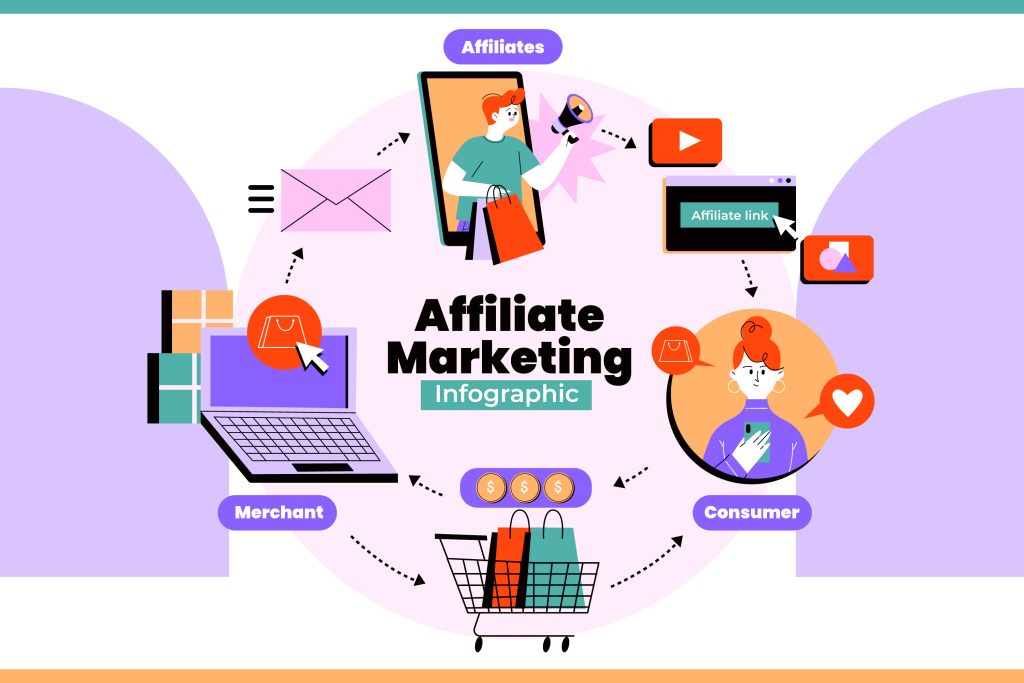Sustainable Marketing
Sustainable marketing represents an emerging paradigm in the business landscape, increasingly shaped by consumers’ growing awareness of environmental and social issues. This approach prioritizes the ethical and sustainable use of resources, while focusing on long-term relationships with customers. As companies strive to compete in an evolving marketplace, incorporating sustainability into their marketing strategies has become not only beneficial but necessary for relevance and survival.
In today’s economy, sustainable marketing impacts consumer behavior significantly. Consumers are more inclined to support brands that demonstrate commitment to eco-friendly practices. Research indicates that a considerable portion of the population prefers products that are responsibly sourced and manufactured, which influences their purchasing decisions. This trend compels businesses to reevaluate their marketing strategies and ensure that sustainability is woven into their core operations.
Organizations that adopt sustainable marketing practices enhance their brand reputation and build loyalty among their consumers. For instance, brands such as Patagonia and The Body Shop have successfully integrated sustainability into their marketing messages. Patagonia, known for its commitment to environmental advocacy, employs strategies that encourage customers to reduce consumption by promoting quality and durability in their products. Similarly, The Body Shop champions ethical sourcing and cruelty-free products, aligning marketing efforts with the values recognized by socially conscious consumers.
Moreover, companies can diminish their environmental footprint through sustainable practices like incorporating recycled materials, reducing packaging waste, and prioritizing local sourcing. By adopting these strategies, businesses not only improve their competitiveness but also foster a more sustainable economy. Thus, the integration of sustainability into marketing is no longer merely a choice but a fundamental aspect that influences brand identity and success in the digital age.

Marketing Strategy Connting Digital Devices Concept
The Impact of Underconsumption on Marketing Strategies
Underconsumption refers to the phenomenon where consumers consciously choose to purchase fewer goods or services, often motivated by values such as sustainability, minimalism, and mindful consumption. This shift in consumer behavior has significant implications for marketing strategies across various industries. As consumers become more aware of their purchasing decisions, brands must evolve their approaches to align with this mindset. The traditional focus on quantity and frequency of purchases shifts to an emphasis on quality, purpose, and authenticity.
In an era where mindful consumption is taking center stage, it is crucial for brands to adapt their messaging to resonate with consumers’ evolving attitudes. Brands can achieve this by fostering transparency and engaging consumers in a conversation around sustainability. This involves not only showcasing eco-friendly practices but also demonstrating the longer-term value of their products through durability, ethical sourcing, and social responsibility. By doing so, companies can build trust and loyalty among consumers who value purposeful purchasing and are skeptical of excessive consumerism.
Moreover, promoting responsible purchasing means emphasizing value beyond just the price tag. Brands are encouraged to highlight the unique attributes of their offerings—whether it be craftsmanship, innovative design, or the impact on community welfare. By providing this deeper context, marketers can attract consumers who are increasingly drawn to narratives of underconsumption, as they seek meaningful alternatives to conventional buying habits.
As consumers begin to prioritize experiences and the intrinsic value of products over mere volume, brands that successfully communicate their alignment with these values can not only thrive but also contribute positively to broader societal shifts toward sustainable consumption. This foundational change in marketing strategy serves as a pivotal opportunity for brands to connect with consumers, foster loyalty, and promote a future-oriented consumer culture where less is indeed more.
Tips for Influencers to Thrive in the Age of Sustainable Consumerism
In today’s digital landscape, influencers play a crucial role in shaping consumer behavior, especially as the focus shifts towards sustainable marketing and underconsumption. To effectively engage with eco-conscious audiences, influencers should consider several strategies that resonate with the principles of sustainability.
Firstly, adopting sustainable practices in daily life is essential for influencers to authentically promote eco-friendly messages. This can include showcasing sustainable fashion choices, using eco-friendly products, or sharing insights into a plant-based lifestyle. By demonstrating commitment to environmentally responsible choices, influencers can illustrate the tangible benefits of sustainable living to their followers.
Secondly, curating content that resonates with an eco-conscious audience is key. This involves emphasizing the stories behind products, exploring sustainable brands, and highlighting initiatives aimed at reducing waste and promoting conservation. Influencers can engage their followers by creating educational content about the impact of overconsumption, thus fostering a sense of community around sustainable practices.
In addition, forging collaborations with brands that align with sustainable values is critical. Influencers should seek partnerships with organizations dedicated to ethical production, transparency, and environmental responsibility. By partnering with such brands, influencers not only enhance their credibility but also introduce their followers to sustainable choices that they can incorporate into their own lives.
Finally, building genuine, trust-based relationships with followers is imperative. Influencers should prioritize open communication, actively engaging with their audience’s concerns and suggestions while showcasing real-life implications of underconsumption. Regularly requesting feedback or involving followers in discussions about sustainability can cultivate a loyal community committed to mindful consumption.
By implementing these tactics, influencers can thrive in the era of sustainable consumerism, solidifying their roles as authentic leaders in promoting eco-friendly lifestyles.
Crafting a Sustainable Marketing Strategy: Key Components
Developing a sustainable marketing strategy requires a comprehensive approach that encompasses numerous crucial elements. The foremost step is audience research, ensuring brands clearly understand their target consumers’ preferences, behaviors, and values. This research should delve into consumer attitudes towards sustainability, enabling brands to align their marketing efforts with the aspirations of eco-conscious customers. By tailoring strategies that resonate with this demographic, brands can foster loyalty and engagement.
Following audience insights, value proposition development is vital. A well-articulated value proposition effectively communicates the benefits of engaging with a brand’s eco-friendly products or services. Brands should emphasize unique selling points that showcase their commitment to sustainability, such as sustainable sourcing, ethical production, or contributions to social causes. This clarity in messaging helps differentiate the brand in a crowded marketplace, attracting consumers who prioritize responsible purchasing decisions.
Eco-friendly communication channels play a significant role in disseminating the brand’s message. Social media platforms, email newsletters, and influencer partnerships can effectively amplify sustainable initiatives. Brands should prioritize channels that resonate most with their target audience, ensuring their message reaches consumers where they are most receptive. Additionally, integrating storytelling into these channels can create an emotional connection, highlighting the brand’s sustainability journey and the positive impact of consumer choices.
Effective messaging is integral to any sustainable marketing strategy. Brands must craft authentic, transparent, and relatable messages that present their sustainability commitments honestly. Avoiding greenwashing is critical, as consumers are increasingly skeptical of marketing claims. Instead, brands should provide clear evidence of their sustainable practices, engaging in dialogue about their environmental impact. By adhering to these key components, brands can create a robust sustainable marketing strategy that not only drives engagement but also fosters a loyal consumer base dedicated to the principles of underconsumption in the digital age.
Digital Marketing Agencies: Bridging Brands and Sustainability
In the contemporary business landscape, digital marketing agencies serve as critical facilitators in the transition towards sustainable marketing practices. These agencies leverage their expertise to aid brands in developing strategies that not only enhance visibility but also align with sustainability goals. By utilizing comprehensive market analysis, agencies can identify consumer trends indicating a preference for sustainable products and practices. This insight enables brands to tailor their offerings accordingly, ensuring they meet the evolving expectations of environmentally-conscious consumers.
One of the key services offered by digital marketing agencies is social media strategy development. With platforms like Instagram, Twitter, and Facebook playing a pivotal role in brand communication, crafting a sustainable narrative is essential. Agencies help brands create engaging content that reflects their commitment to sustainability, enabling them to connect authentically with their audience. Through targeted campaigns that promote eco-friendly initiatives and responsible consumption, brands can contribute to broader societal shifts while distinguishing themselves in a crowded marketplace.
Content creation is another significant area where digital marketing agencies contribute to sustainable marketing efforts. By producing high-quality, informative content that highlights sustainability successes, agencies help brands educate their audience. Moreover, this content acts as a tool to reinforce brand values, nurturing long-term loyalty among consumers who prioritize sustainable options. Case studies of successful collaborations between brands and agencies illustrate the tangible benefits of these partnerships. For example, a partnership between a cosmetic brand and a digital marketing agency led to a well-received campaign emphasizing the use of biodegradable packaging, resulting in a substantial increase in market share while promoting responsible consumption.
Through these multifaceted strategies, digital marketing agencies play an indispensable role in helping brands not only communicate their sustainability efforts but also operationalize them effectively. As the digital world evolves, these partnerships will become increasingly vital in fostering a culture of underconsumption and promoting sustainable business practices.
Technology and Tools for Sustainable Marketing
In the evolving landscape of marketing, brands are increasingly leveraging technology and tools that promote sustainable practices. One of the critical components of sustainable marketing is the utilization of analytics platforms. These platforms enable brands to measure their impact by collecting data on customer engagement, conversion rates, and overall sustainability metrics. By analyzing consumer behavior trends, companies can make informed decisions that align with both their marketing goals and sustainability objectives.
In addition to analytics, eco-friendly advertising technologies play a significant role in supporting sustainable marketing efforts. These technologies focus on reducing the carbon footprint associated with online advertising. For instance, platforms that prioritize energy-efficient ad delivery ensure that campaigns do not excessively burden the environment. Furthermore, brands can utilize tools that offset their digital advertising emissions through partnerships with renewable energy projects or by supporting carbon-offset initiatives. This approach not only enhances brand reputation but also resonates with environmentally conscious consumers.
Digital marketplaces are another vital tool that supports sustainable brands. These platforms offer curated spaces for eco-friendly products and services, connecting like-minded consumers with brands committed to sustainability. By utilizing these marketplaces, businesses can increase visibility among target audiences while promoting their sustainable offerings. Additionally, these platforms often provide features that allow brands to showcase their sustainability certifications and practices, thereby enhancing transparency and trust.
By harnessing these technologies and tools, brands can track their performance efficiently while enhancing visibility through sustainable marketing practices. Adopting a comprehensive strategy that incorporates analytics, eco-friendly ad technologies, and digital marketplaces is essential for brands committed to thriving in the digital age while emphasizing responsible consumption.
Future Trends in Sustainable Marketing
The landscape of sustainable marketing is continuously evolving, shaped by shifting consumer expectations and broader societal changes. As we look toward the future, several key trends are emerging that will significantly impact how businesses approach sustainable marketing. One primary trend is the increasing demand for transparency. Consumers are becoming more discerning about the brands they support, seeking clear and authentic communication regarding environmental impacts, supply chain ethics, and corporate social responsibility practices. This desire for transparency necessitates that brands not only provide information but also demonstrate their commitment to sustainability through actionable change.
Another notable trend is the rise of ethical branding. Companies that integrate ethical considerations into their marketing strategies are gaining a competitive edge. This approach involves aligning brand values with sustainable practices, giving consumers a sense of connection and loyalty to brands that reflect their beliefs. Additionally, businesses can leverage storytelling techniques to convey their sustainable initiatives, showcasing their journey toward responsible practices while engaging their audience effectively.
Community involvement is also becoming an essential element of sustainable marketing. Consumers increasingly prefer brands that collaborate with local communities and prioritize social issues, thereby fostering a positive societal impact. This trend encourages brands to build partnerships with local organizations and create marketing campaigns that resonate with community values and priorities. Such initiatives can lead to enhanced brand trust and deeper consumer relationships.
As businesses prepare for the future, it is vital to remain agile and responsive to these trends. Innovating within sustainable marketing practices not only enables companies to align with emerging consumer expectations but also cultivates long-term loyalty and success. In sum, the future of sustainable marketing will be defined by transparency, ethical branding, and community engagement, empowering brands to thrive in an increasingly conscientious marketplace.


